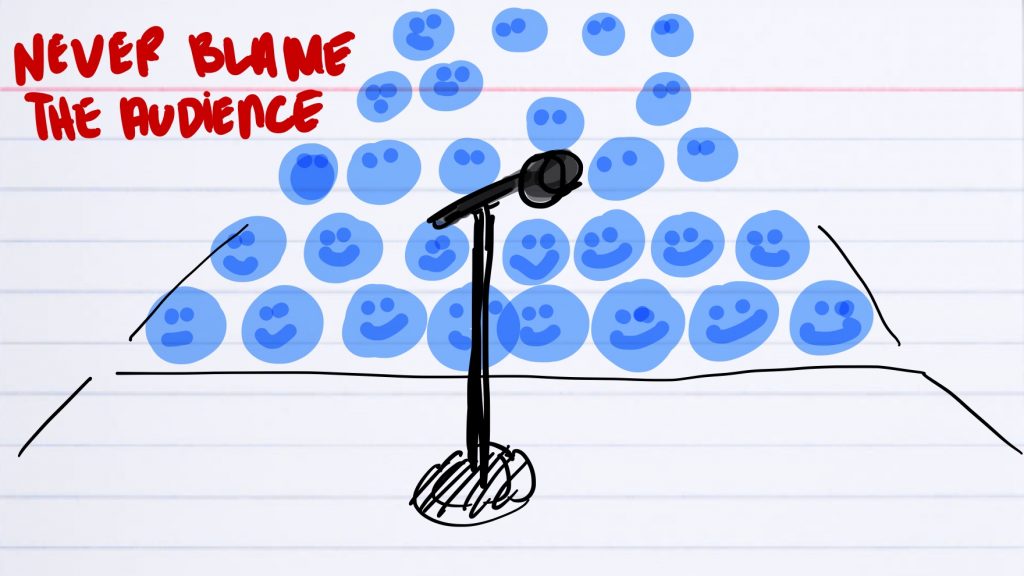“Bad crowd out there.”
I was listening to Jocko Willink’s appearance on James Altucher’s podcast and enjoyed a small interaction at the end. They’re cut a little short because of the studio schedule, and James jokes that it’s the producer’s fault that he didn’t schedule enough time for it.
Jocko calls him out. You should’ve done a better job communicating how much time you’d need.
Jocko’s all about claiming responsibility for mistakes. His first book was “Extreme Ownership”. Tim Ferriss often brings up Jocko’s technique of replying “Good.” to bad situations. Not to create false silver lining, but to get your mind thinking about what you learned from this particular failure.
From Tools of Titans:
“Now. I don’t mean to say something clichéd. I’m not trying to sound like Mr. Smiley Positive Guy. That guy ignores the hard truth. That guy thinks a positive attitude will solve problems. It won’t. But neither will dwelling on the problem. No. Accept reality, but focus on the solution.”
I like that Altucher isn’t defensive. In fact, he seems to enjoy whenever he’s called out on something so that he can improve. Then he relates it to stand-up comedians. (Seems like Altucher’s been immersing himself in the stand-up comedy world with all the comedians he’s had on as guests recently.)
They’ll often come back from the stage and talk about how bad the crowd is.
It might be. Some crowds are better or worse for different people.
Still, it’s useful to take ownership over it if you want to improve.
Bad crowd. Good. You’re a live performer so now you can practice switching on the fly, trying a new bit, and seeing if any part of it has wide appeal.
Or you can go through your set as usual and blame the crowd again. Which one would help you improve?
Let’s say you’re a writer and someone leaves a bad comment. You start typing, “You’ve totally missed the point…”
Did they? Did you make it clear enough in the first place?
Take ownership. Don’t blame the audience.
(But if you didn’t like this then you’re a bad reader!!!!!!!!!!!!!!!!!!!!)
